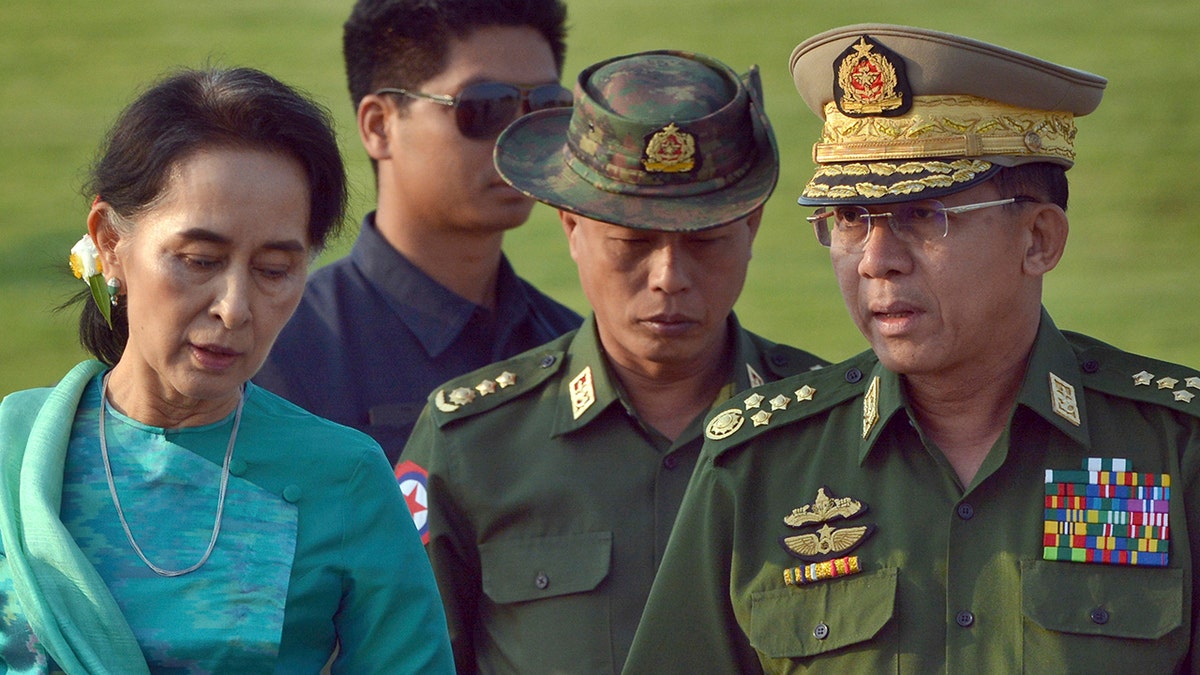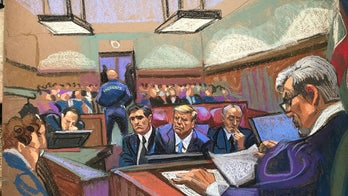Fox News Flash top headlines for February 1
Fox News Flash top headlines are here. Check out what's clicking on Foxnews.com.
President Biden on Monday warned military leaders in Burma that the U.S. could reinstate sanctions against the nation after a military coup took control of the country and detained senior leaders.
The U.S. "removed sanctions on Burma over the past decade based on progress toward democracy. The reversal of that progress will necessitate an immediate review of our sanction laws and authorities, followed by appropriate action," he said in a statement.
U.S. Secretary of State Antony J. Blinken on Sunday called for the military to "reverse these actions immediately." The Burmese military detained senior leaders—including Aung San Suu Kyi, its de facto leader—and called for the military to "reverse these actions immediately."
Suu Kyi's whereabouts remained unknown on Tuesday more than 24 hours after her arrest, Reuters reported.
Myawaddy TV, which is controlled by the military, announced the takeover and cited a section of the military-drafted constitution that allows the military to take control in times of national emergency. The presenter said the reason for the takeover was, in part due, to the government's failure to act on the military's claims of voter fraud in last November's election and its failure to postpone the election because of the coronavirus crisis. A state of emergency has been declared for a year.

FILE - In this May 6, 2016, file photo, Aung San Suu Kyi, left, Myanmar's foreign minister, walks with senior General Min Aung Hlaing, right, Myanmar military's commander-in-chief, in Naypyitaw, Myanmar.(AP Photo/Aung Shine Oo, File)
The National League for Democracy, which is led by Suu Kyi, said in a statement obtained by Reuters that those in the country should reject the military actions.
"The actions of the military are actions to put the country back under a dictatorship," the statement read. "I urge people not to accept this, to respond and wholeheartedly to protest against the coup by the military."
Jen Psaki, the White House press secretary, said the U.S. is "alarmed" by reports from Burma. President Biden has been briefed on the unfolding situation by National Security Advisor Jake Sullivan.
"We continue to affirm our strong support for Burma’s democratic institutions and, in coordination with our regional partners, urge the military and all other parties to adhere to democratic norms and the rule of law, and to release those detained today," she said. She said the U.S. will "take action against those responsible" if the steps "are not reversed."
CLICK HERE TO GET THE FOX NEWS APP
The takeover is a sharp reversal of the partial yet significant progress toward democracy Myanmar made in recent years following five decades of military rule and international isolation that began in 1962. It would also be shocking fall from power for Suu Kyi, who led the democracy struggle despite years under house arrest and and won a Nobel Peace Prize for her efforts. The BBC reported that the country was ruled by the military until reforms began in 2011. The report said that the military did poorly in the November elections and Suu Kyi’s party did "even better than in 2015."
The military, however, maintains its actions are legally justified, though Suu Kyi's party spokesman as well as many international observers have said it is in effect a coup. The commander-in-chief of the armed forces, Senior General Min Aung Hlaing, is said to be in control of the country. ABC News reported that he is accused of human rights abuses against the Rohingyas.
In 1989, the military government changed the country's name from Burma to Myanmar. The U.S. continues to refer to it as Burma. Suu Kyi, has made clear to foreign diplomats: It doesn’t matter if they call her country Myanmar, or its old name, Burma.
Thant Myint-U, a historian of Myanmar, told the New York Times that the doors in the country just opened to a "different, almost certainly darker future."
"Myanmar is a country already at war with itself, awash in weapons, with millions barely able to feed themselves, deeply divided along religious and ethnic lines," he said. He continued, "I’m not sure anyone will be able to control what comes next."
The Associated Press contributed to this report





